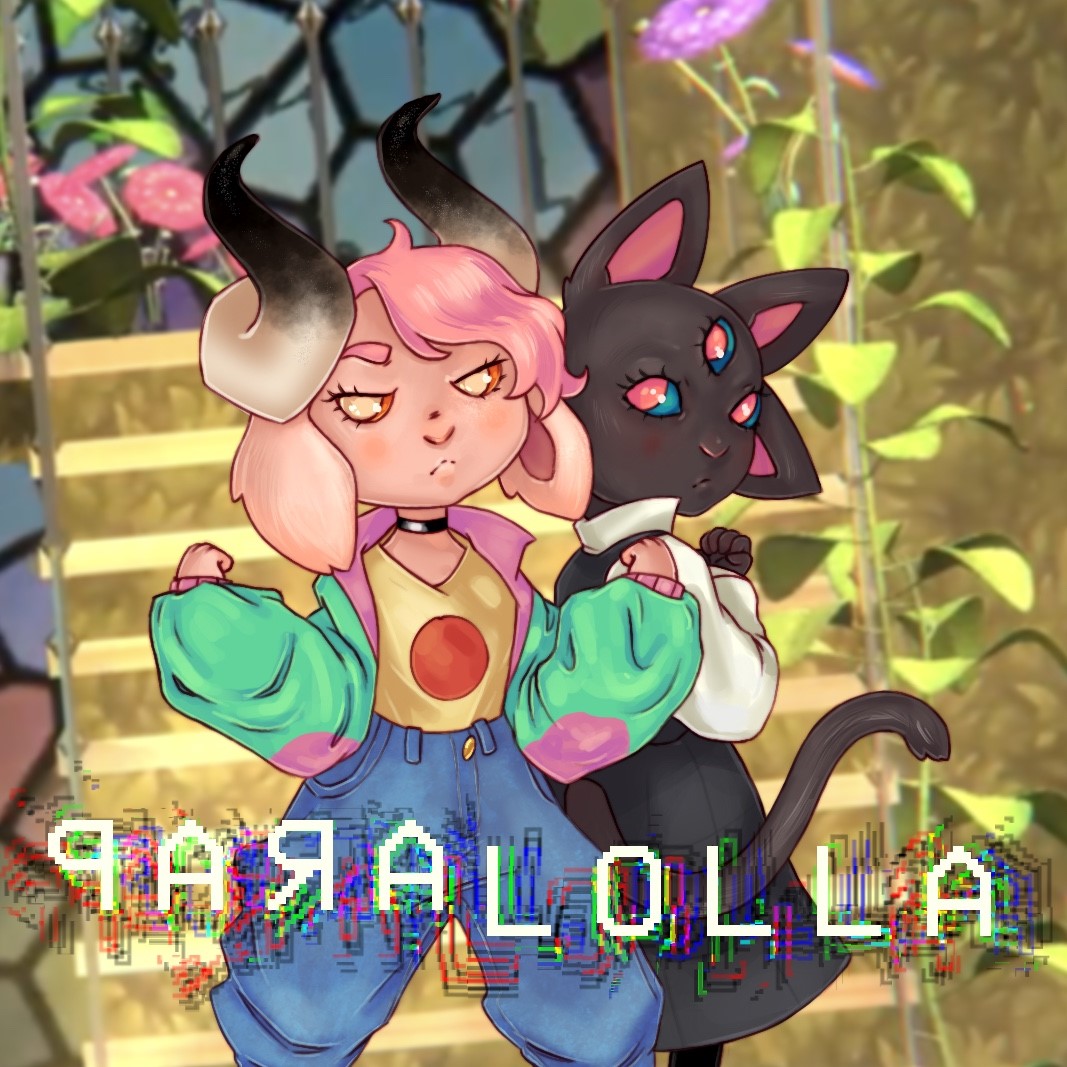
an investigation into gender and empowerment in gaming
From Alice in Wonderland to Coraline: Paralolla examines the precedents of the heterotopia in fictional media to critically fabricate a digital game based experience addressing the pressures surrounding gender identity for the young female and non-binary consumer. The aim of this research is to add to critical discourse and practice surrounding the development of video games as alternate explorations of self. The research suggests that the medium of gaming as a platform allows young womxn reprieve from the psycho-social strains of their gender identity. Foucault’s concept of heterotopias as a multi-purpose literary tool is key to how Paralolla’s narrative has been developed for the gaming medium, designed for interactive and non-passive engagement. Furthermore, Paralolla seeks to affirm the gaming medium as a potential “classroom” for feminist and gender discourse. The medium allows for the simulation of systems of power which implement the ideas of gender enactment or intersectionality. By constructing Paralolla according to theories from third-wave feminists such as Judith Butler and bell hooks, Paralolla invites differing gender experiences to empower female and gender non-binary people.
This is the prototype of a game which I created after having being inspired by Foucault’s theory of the heterotopia, and later the feminist theories of governed gender identity and how we might escape such entrapment through digital platforms. Focusing on young womxn particularly and how an enforced notion of feminism might segregate gender non-conforming individuals, I thought of the heterotopia in terms of Lewis Carroll’s Alice in Wonderland and Neil Gaiman’s Coraline - stories which were intended to empower the same audience. Through further research I discovered that the strength in these stories were the heterotopia or Wonderlands themselves. When Alice and Coraline fall through to worlds which unbind them from the inner conflicts of their lives, so too does the reader. In bell hooks theories she calls for a mass based movement of which we extend feminist discourse to everyone - meaning, making it both accessible and for everyone. I believe gaming is the medium in which we can achieve this. By instilling feminist discourse and opportunities for alternate explorations of self within the games we craft, we invite players to lessen the restrains on their own identity and return empowered by the simulated journeys they’ve embarked on.
Paralolla does this in a way which comments largely on the governing of bodies to uphold westernised beauty ideals. Instead of young womxn, we have the adolescent Trifling to reflect us. Their school is the invisible identity-prison posing as structure. The “Matrons” that you will see, their “teachers”, only serve to further enforce the binary, as previous and still existing modes of institutionalised education serve to create “productive” members of society. For a time, for young womxn, this meant solely the “wife’s role” and the bearing of children and so their education was stunted and their physical bodies controlled.
In Paralolla this is also the central conflict. The Abscission Ceremony which takes place on the 13th birthday of the Trifling looks at the diversity in the bodies of the Trifling and takes violent measures to impose a structure which halts the growth of not only the Trifling themselves, but the very worlds they inhabit. This is why Lolla must fall through to the heterotopia, and the player alongside her. We must give them the experience of empowerment in whichever body they may have, because like the Trifling we as humans are an abundance of diversity and should work towards celebrating such. Lolla’s world inside the heterotopia, which is accessed through the handheld gaming console found in the prototype, is unaffected by the enforced structure of the Matrons. There are no restraints in this version of the school, the environment of the identity. And so it has grown far beyond the scope of what is even possible in Lolla’s native reality, much as we are able to grow once we step out from behind the identities we both get trapped and trap ourselves in. The game console as a portal represents the digital platforms we can use to do so.



